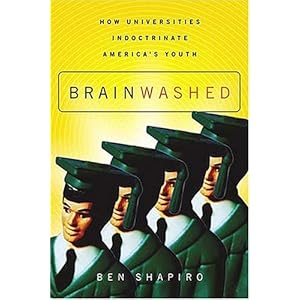So here's the thing -- Mamba is right. The primary purpose of college is to prove to employers you can get through college. It's great that there are lots of oeople who still believe in college, but that doesn't make him wrong. The thing is that that's the big problem with college, because it creates an impressive set of perverse incentives when a college's value is measured by how difficult they make it to graduate. If anything, that process alone is probably responsible for most of the problems with college today -- just look at graduate school, where the same factors have been operating for longer and at a higher level. It's also why you see people who really believe in college get shellshocked when they graduate and are treated like every other card-puncher rather than like people who worked are at education.
I'm not sure it's possible to run the clock back -- I don't think we've ever been able to lower the expected level of education. But that's exactly why we need to formalize college, the way we formalized primary and secondary school, as something everybody goes to -- otherwise we'll get another permanent underclass situation where the only way to get a job that pays is to have enough money for college already. I say "get," but of course, this is already the situation for millions of Americans.
I'm fine with that but we have to fix the lower levels of education first. We can't just send everyone to college if we don't get them fixed at lower levels first. It'll just be a giant waste of resources.
hell, in this economy it's a waste. 40% of graduates get jobs that don't require a defree.
You guys are misunderstanding the missions of colleges. They, like the Fed, have a dual mandate: train students in a variety of subject matters so that they can analyze data from multiple viewpoints and to increase humanity's store of knowledge through research.
You focus on the first part and say it isn't worth what you paid for. That could be true depending on the cost of your tuition, but you did pick up valuable skills while in college. Some of those could be learning how to write thought provoking papers or how to deliver presentations. You also get exposed to a more multicultural society compared to one you have at a local high school. This allows for the challenging of ideas by other students and better prepares you for operating in a less homogeneous social setting than you are use to. College is about challenging its students to think logically and be more open to other ways of doing things. Do all get that benefit? Probably not.
The other area of the mandate, research, is probably of equal or more value than the instructing side of college. It all depends on how you look at it, but college is more than a diploma mill.
I am only speaking from the perspectives of students and employees. Universities have other functions than education like research. Research in immensely important to our economy and understanding of the everything.
FWIW, I never said something isn't worth what we pay for it. I'm just saying for students it's a signal for employers that they are high skilled workers.
Also, as I said, I loved college and it was the best time of my life. It's just we have to understand what it is at its core.
Free college for all should raise standards from now. Now colleges have a profit incentive to lower standards and let anyone in regardless of they should be there or would even do well there. And they have a profit incentive to keep them going throughout the program in order to keep getting money. With college's incentive on teaching people and testing capabilities, you could have higher standards. You'd effectively want only the better people making it through.
I don't understand how you've concluded free college raising standards. Why do colleges have an incentive to lower standards? Standards have been rising for decades. Universities are getting 10+ applications for every 1 open spot. IIRC the average GPA for the big 3 UCs is 4.3. The profit incentive of universities is exactly why they do this - better quality of student = better chance for success = more alma mater donations.
Currently, there is a shortage of universities (Demand exceeds Supply). In order to accommodate a free college for all mandate you'd have to build more universities and admit more people. This would lower standards quite obviously. It also has the adverse affect of leading more people to not even complete high school (as I posted earlier).
Now, if you want to argue that there should be no additional university access but only if once you are in university you are given it for free, that's why I suggested programs that pay you back as a solution.
Cost shouldn't be the barrier to entry into getting a good job in life. It should be ability and hard work.
I agree but the world isn't perfect. In society we have to get those with ability and good work ethic into the places that properly use them. It doesn't happen via magic. One of the solutions we've discovered of filtering out who are these people is through getting a degree and without a cost structure it is hard to filter. You have to find solutions to the real world.




